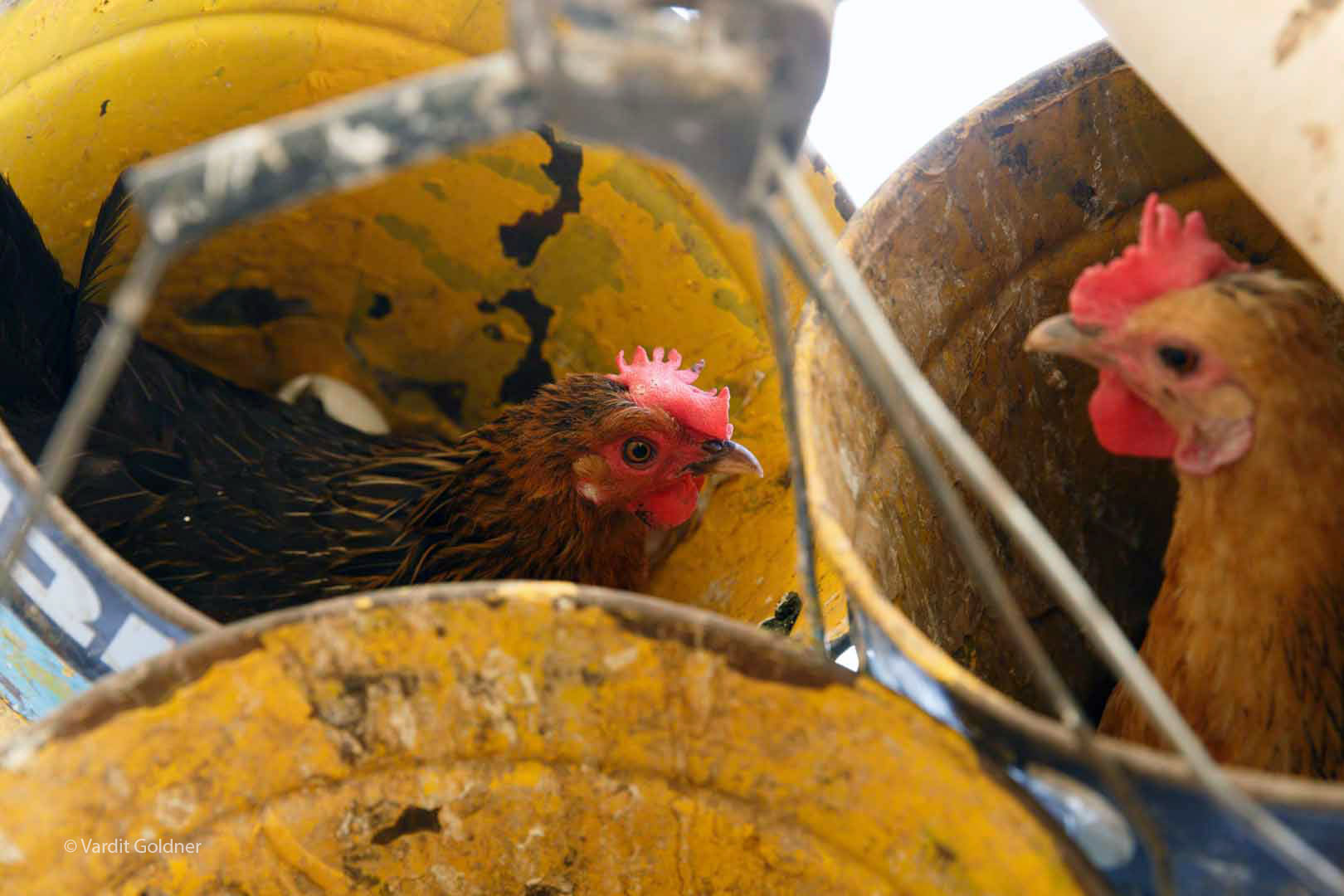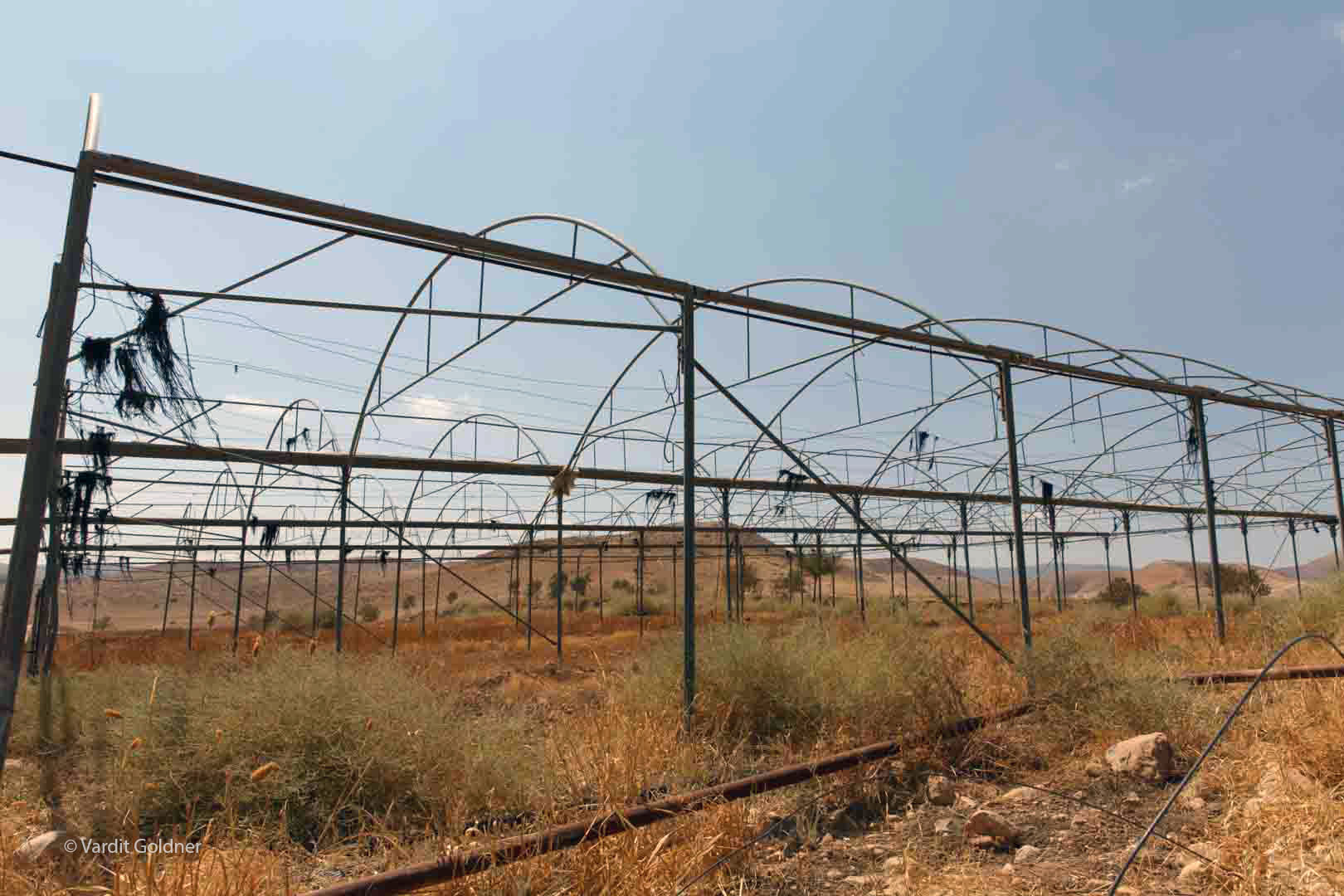The Palestinian Jordan Valley
T.H
Zaatara/Tapuach Junction checkpoint 9:20 – The Israeli civilian police stops drivers (only Palestinians) for various traffic violations and sends them to stop at the roundabout, where they await traffic ticket and fine, of course. Two drivers were fined for not wearing safety belts, and one for having a child passenger 4-5 years of age not seated in a child’s safety seat. A few hundred yards east of the junction a new dirt track climbs up the hill with blue and white Israeli flags flapping all the way. We did not follow it to check the reason for the celebration. On our way back in the afternoon the flags were no longer in sight. A bus unloaded a group of soldiers there.
The way to Jwarish is still blocked with piles of rocks, as it has been for months now.
At Migdalim settlement a new neighborhood is under construction – dozens of villas, next to the caravans put up lately.
Maale Efrayim Checkpoint – no soldiers in sight on our way there and back.
An area nicknamed “The Bath” – a large plot of land belonging to Palestinians from the village of Akaba –has been annexed to the settlement Gitit and has been leased for years to various Israeli entrepreneurs. After the traditional year of agricultural rest, signs indicate preparations made for cultivation.
At Mechora settlement a large area has been prepared for cultivation next to the road, south of the settlement itself, and is now covered with plastic sheets.
Visit at the demolished dwelling of the Al Fitr family, near Akaba
Outside the village of Akaba, among the rocky hills, live 4 Bedouin families, three of them of brothers. They all live in dire poverty and find their meager living from sheepherding, living without any water or electricity supply. For some reason the Civil Administration (whose duty is to care for the civilian population) has decided to demolish A.’s encampment. The reason: he has no permit to put up tents. This is Area C, where Palestinians are not entitled to build anything since 1967.
(whose duty is to care for the civilian population) has decided to demolish A.’s encampment. The reason: he has no permit to put up tents. This is Area C, where Palestinians are not entitled to build anything since 1967.
We arrived on Eid Al Adha (important religious holiday) and therefore found none of the family members, as they were off paying the customary holiday visits to relatives. We did meet one of the brothers and photographed the rubble.
Water problems in the Palestinian Jordan Valley: The settlements are provided with plenty of water – for irrigation, consumption and fun. The Palestinians, on the other hand, get no water at all.
- D.’s family in En Al Hilwa are shepherds living in an “unrecognized village”. They are not allowed to purchase their water from Mekorot – the Israel water company that has installed a grid of wells throughout the Jordan Valley, an area rich with groundwater. Even water holes for storing rainfall are forbidden to Palestinians! Let alone wells with pumps… Every water hole needs a permit and there is no chance for such. Their solution is to buy water from other Palestinians (living in the West Bank hills) and transport it home via dirt tracks, usually in 10 cub.m. tankers. Most of the expense is on this transport. They purchase the water from private persons, mainly in Bardala, but not everyone is willing to sell them water and some charge an exorbitant price. In Tubas, for example, someone demands 250 shekels for 10 cub.m. which he transports in his own tanker (depending on the distance, of course). But Tubas, in Area A, does not have sufficient water either. In the height of summer the taps have water only two hours a day.
- At Tyassir (Area B) water costs 150 shekels a container. Whereas Mekorot is not limited in the extent and depth of wells that it bores, the Palestinians are not allowed to bore deeper than 300 meters. Mekorot bores deeper and diverts springs, thus drying up water sources for the Palestinians.
- At F.’s farm in Faresiya we found neglect and some remains of a broken dream, of flourishing farming: 6 greenhouses, dozens of beehives with equipment for harvesting honey, an olive tree grove and a water hole that was supposed to store water diverted from the Al Maleh stream nearby. About two years ago the Civil Administration destroyed the pumps and all the equipment that was supposed to provide the project with water, and all that had already been planted and grown dried up. F. was not issued installation permits for the pipes and pumps. Only the Jewish settlers may take the initiative, promote and develop flourishing farming projects with a cheap and generous supply of water provided by Mekorot. Thus the man lost all the money he had invested, and now makes his living as a farm worker at the settlement (earning 70 shekels a day).
-

-

The abandoned greenhouse of F.
- The A. family at Samara, shepherds as well, transport water in their truck from En Al Beida, thus saving on transport costs. They pay only 40 shekels per water container.
